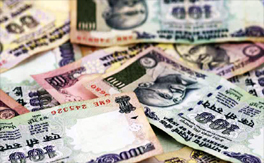Global electricity review 2024
Renewables generated a record 30 percent of global electricity in 2023, driven by growth in solar and wind especially from China, according to the Global Electricity Review 2024 released by the global
Renewables generated a record 30 percent of global electricity in 2023, driven by growth in solar and wind especially from China, according to the Global Electricity Review 2024 released by the global
INDIA is likely to meet its target of reducing the emission intensity of the economy by 20 to 25% from the 2005 levels by 2020 going by its past record. The country reduced its per capita emission intensity between 1994 and 2007 by 30%, according to a report prepared by the Indian Network for Climate Change Assessment.
The emissions intensity of India
: Climate change politics has always been contentious because of its direct link with economic growth. The Kyoto Protocol that had set a meagre target of reducing emissions from developed countries is all set to be jettisoned because these countries have failed to reduce their emissions and find this protocol

This report shows how banks are providing leadership in creating a low carbon economy. Finds that banks are aware of opportunities that are available to stimulate investment
The U.S. Energy Information Administration (EIA) recently expanded its reporting of energy-related carbon dioxide emissions starting in the fall of 2009. This analysis examines the level and drivers of energy-related carbon dioxide emissions in 2009.
The first assessment of the United Nations (UN) system
Cutting emissions beyond 2020 is tough; land and water needs will create social turmoil
NEW DELHI: Once the low-hanging fruit of energy efficiency technologies has been plucked in order to meet India's 2020 commitment to reduce emissions intensity, the country will find it difficult and expensive to reduce any further, according to a study by the Centre for Science and Environment.
The Centre for nd Environment's Science and Environment's (CSE) landmark study on the cost and feasibility of emissions reduction to combat climate change believes steel will prove to be the problem sector for India.
Water usage to rise 3 times by 2030, land need to soar.